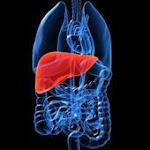A blog for me and people like me, beating HepC
My Video Diary
About this blog...
"A blog for me and people like me, beating HepC"
Hi, I'm a Hepatitis C sufferer and have been for about 25 years or so, unbeknown to me!
The virus became 'active' a few years ago and I was diagnosed sometime after that. Unfortunately my liver was already too badly damaged to undergo traditional treatments.
Since that time my health deteriorated until I had a Full Liver Transplant at St Jimmy's in Leeds, however the HepC still remains!
This is my story about my fight with the virus until I beat it or it beats me... and so far I'm winning!
I hope that what I write here may help others who battle daily with HCV and also for those who face, or have faced the 'highs & lows' of an Organ Transplant.
I have an eye for the unusual, a love of philosophical and political humour and enjoy nothing more than good, old fashioned 'Mickey' taking! I write my blog mainly to amuse me, but also to let people know what HepC is and what it's like to live with.
Please click on the links on this site for the Hep C Trust, Hep C Nomads and others, whom I have relied on for information, help and support - and without whom, I would not be here today.
I hope you enjoy reading my by blog and maybe even find it amusing and enlightening!
Keep well everyone... Ian
Hi, I'm a Hepatitis C sufferer and have been for about 25 years or so, unbeknown to me!
The virus became 'active' a few years ago and I was diagnosed sometime after that. Unfortunately my liver was already too badly damaged to undergo traditional treatments.
Since that time my health deteriorated until I had a Full Liver Transplant at St Jimmy's in Leeds, however the HepC still remains!
This is my story about my fight with the virus until I beat it or it beats me... and so far I'm winning!
I hope that what I write here may help others who battle daily with HCV and also for those who face, or have faced the 'highs & lows' of an Organ Transplant.
I have an eye for the unusual, a love of philosophical and political humour and enjoy nothing more than good, old fashioned 'Mickey' taking! I write my blog mainly to amuse me, but also to let people know what HepC is and what it's like to live with.
Please click on the links on this site for the Hep C Trust, Hep C Nomads and others, whom I have relied on for information, help and support - and without whom, I would not be here today.
I hope you enjoy reading my by blog and maybe even find it amusing and enlightening!
Keep well everyone... Ian
Hep C Nomads
Current Moon Phase
CURRENT MOON
ShareThis
Search This Blog
Labels
- 2011 Resolutions
- 2nd Video Diary Post
- A Joke
- A letter from Terry
- A Little Victory
- A Merry Christmas To All
- A Poem by W. H. Davies
- Ali's Reply
- And it's game
- Angry Youn Man
- Another Joke
- Another Letter to Ali
- Arab on donkey
- Back to Square One
- Banging On About It
- Bankers
- BattleCry
- BBC - Health: Hepatitis C
- Bill Gates
- Blair/Baldrick/Bush
- bloody new fangled stuff
- Boceprevir
- Brand New Me
- Breaking the News
- Britain or Dubai
- Camping
- Center Parcs
- Christmas / Fiction
- Christmas 2009
- Coffee
- Comments and Replies
- Cranky Old Man
- Dalai Lama
- Define Myself
- Doctor Killdare
- Dr Bob / Fiction
- Euro Tunnel Buyer Found
- Eva Day
- First Time Buyers
- First Video Diary Post
- fortunately for everybody
- Get A Job
- Getting Political
- Ghoulish
- Go screw yourselves say Goldman Sachs
- God save the Queen
- Going Away Day
- Gut Fawkes Lives
- Happy New Year
- Hep C Trust Campaign
- Hep C Ttreatment
- Hepatitis Aware
- HepC and Liver Transplant
- HepC Damages Brain Cells
- HepC Made Simple
- Home Sweet Home
- I think
- I'm Ready to Fight Back
- Ian Dury
- Is There A Santa Clause?
- It Just Dont Work
- Its been a while...
- Julian Assange
- Just Me Carpin' On Again
- Karadzic - It wasn't Me
- Leisure
- Lethal Cocktail
- Letter to Ali
- Letter To Myself
- Lib Dems
- Loose Women
- Lord Myners
- Margaret’s Story
- Meditation
- Miss Spanky
- Monbiot
- Mumsnet
- My Big Fat Idea
- My Birthday
- My Mission Statement
- My thoughts lately
- My World
- New Look
- Now the fighting really begins
- On the Telly
- Open Letter
- Our Anniversary
- Petition to Gilead Sciences
- Pretty Vacant
- Queens Speech
- Questions
- Random
- Reasons for Writing
- Revelation
- Roy 'Dick' Keane
- Send More MP's
- set and 'Meth' to Agassi
- Shane Laffy - We Got Love
- Sir Ian Kennedy appointed to help achieve F*uck All
- Sober Christmas
- Some Bloody Mate
- Stories Like Mine
- Strange New World
- Tackling Hepatitis C
- Tax in Post
- Telaprevir
- Terry's Blog
- The Apprentice
- The Bionic Man
- The Op
- therefore I am
- Thierry Cheating Twat
- Thunderbirds Are GO
- Tiger and the Fat Slags
- Time Goes Slowly
- Tony McNulty apologises for being a slippery turd
- Tupenney Rent-Boy
- Unbelievable
- Understanding Autism
- Unite Against Fascism
- Utter B*llocks
- Video Diary 5
- Virtual World
- WAFT-C Study
- Wales in danger of falling into the sea
- What if money didn't matter?
- Words of Wisdom from Wossy
Blog Archive
-
▼
2011
(22)
-
▼
June
(6)
- Hepatitis C and its Effects on Liver Transplantati...
- I'm Ready To Fight Back! (Hepatitis C / Liver Tran...
- A letter to my MP for the Hep C Trust (Hepatitis C...
- Treating Hepatitis C With Telaprevir (video) (Hepa...
- VICTRELIS Boceprevir - How Long Will I Be On Treat...
- Coffee drinking improves Hepatitis C treatment res...
-
▼
June
(6)
Followers
My Diary Posts

My Diary Posts
What Is Hepatitis C?
Hepatitis C Information:
Hepatits C is a blood-borne viral disease which can cause liver inflamation, fibrosis, cirrhosis and liver cancer. The Hepatitis C virus (HCV) is spread by blood-to-blood contact with infected person's blood. Many people with HCV infection have no symptoms and are unaware of the need to seek treatment. Hepatitis C infects an estimated 150-200 million people worldwide. It is the leading cause of liver Transplant...
Hepatitis C is an inflamation of the liver caused by infection with the Hepatitis C virus is one of the five known hepatitis viruses: A, B, C, D & E. Hepatitis C was previousley known as non-A non-B hepatitis prior to isolation of the virus in 1989.
Symptoms of Acute Hepatitis C:
Acute Hepatitis C refers to first 6 months after infection with HCV. Remarkably, 60% - 70% of people develop no symptoms during the acute phase. In the minority of patients who experience acute phase symptoms, thet are generally mild and non-specific, and rarely lead to specific diagnoses of Hepatitis C. Symptoms of acute hepatitis C include decreased appetite, fatigue, abdominal pain, jaundice, itching and flu-like symptoms.
Symptoms of Chronic Hepatitis C:
Chronic Hepatitis C is defined as infection with the Hepatitis C virus persisting for more than six months. The course of chronic hepatitis C varies considerably from one person to another. Virtually all people infected with HCV have evidence of inflamation on liver biopsy however, the rate of progression of liver scarring (fibrosis) shows significant inter-individual variability.
Hepatits C is a blood-borne viral disease which can cause liver inflamation, fibrosis, cirrhosis and liver cancer. The Hepatitis C virus (HCV) is spread by blood-to-blood contact with infected person's blood. Many people with HCV infection have no symptoms and are unaware of the need to seek treatment. Hepatitis C infects an estimated 150-200 million people worldwide. It is the leading cause of liver Transplant...
Hepatitis C is an inflamation of the liver caused by infection with the Hepatitis C virus is one of the five known hepatitis viruses: A, B, C, D & E. Hepatitis C was previousley known as non-A non-B hepatitis prior to isolation of the virus in 1989.
Symptoms of Acute Hepatitis C:
Acute Hepatitis C refers to first 6 months after infection with HCV. Remarkably, 60% - 70% of people develop no symptoms during the acute phase. In the minority of patients who experience acute phase symptoms, thet are generally mild and non-specific, and rarely lead to specific diagnoses of Hepatitis C. Symptoms of acute hepatitis C include decreased appetite, fatigue, abdominal pain, jaundice, itching and flu-like symptoms.
Symptoms of Chronic Hepatitis C:
Chronic Hepatitis C is defined as infection with the Hepatitis C virus persisting for more than six months. The course of chronic hepatitis C varies considerably from one person to another. Virtually all people infected with HCV have evidence of inflamation on liver biopsy however, the rate of progression of liver scarring (fibrosis) shows significant inter-individual variability.













0 comments:
Post a Comment